E3 Precap: Nintendo's Sisyphean Task
It's been a rough couple of years for Nintendo. We look at the root of their troubles (spoilers: It's Wii U) and contemplate how they can turn things around next week at E3.
This article first appeared on USgamer, a partner publication of VG247. Some content, such as this article, has been migrated to VG247 for posterity after USgamer's closure - but it has not been edited or further vetted by the VG247 team.
I've worked in the gaming press for more than a decade now, and in that time I think it's safe to say there's no company I've been more critical of over the years than Nintendo.
I suppose that's true for much of the press, but my criticism comes from a different place than most pundits, the majority of whom simply want to see Nintendo go away. I criticize Nintendo not because I view the company as a lumbering dinosaur plodding its way to extinction in defiance of all that video games ought to be. I criticize because I genuinely admire Nintendo and see tremendous value in the perspective from which it approaches the games business. I hurt, as they say, because I love.
Nintendo has always done things its own way, for better and for worse, and even after three decades of making its living from video games the company still doesn't tackle the science of creating games from the vantage point of a tech or gaming entity. Nintendo places inclusiveness, playfulness, and accessibility above technical finesse. When it dabbles in potentially exploitative trends with its games, it does so in interesting ways that place the game element ahead of mere exploitation. And while the company's leaders never seem to be above culling ruthless profits, they're more likely to do so at the expense of other companies than at the expense of fans and customers.
I'm not a blind fan of Nintendo; sometimes, I'm not even a fan at all. And when the company treats its customers in poor faith, it seem a more egregious betrayal than when other publishers do similar things because reckless misbehavior isn't simply business as usual for Nintendo.
But even at their worst, I sincerely believe that were Nintendo to bow out and meekly go third party (or go away altogether), the games industry would be far poorer for the loss. Nintendo brings a decidedly left-of-center perspective to the business, refusing to get caught up in battles over processing power, rarely deigning to churn out the same cookie-cutter design-by-bullet-points AAA games that everyone else does. When the Nintendo approach works, the company is untouchable — witness the runaway success last generation of both Wii and DS at the same time.
When it doesn't work, though, you end up with the Nintendo you see now, a struggling and uncertain entity. That refusal to simply hold the industry line cuts with a double edge; it can put them far ahead of the competition, yet it can also make them seem clueless and irrelevant. Over the past couple of years, Nintendo's fortunes have dramatically reversed from the highs of the Wii era. Practically everything about Nintendo's recent behavior, from the albatross of the Wii U Game Pad to president Satoru Iwata's trademark "please understand" apologies, have turned into running Internet jokes. While "serious" gamers perpetually wish ill for Nintendo regardless of the company's profits — remember how many people insisted Wii was a fad even as it outsold every other console over the course of five or six years? — that kvetching came across as sour pettiness when the company ruled the NPD charts. Now, it has an uncomfortable ring of truth.
And so, Nintendo's task at E3 2014 couldn't be simpler. It needs only turn the tide of public opinion and reverse the foundering corporate bottom line. All it has to do is but claw its way back from the abyss. It couldn't be a simpler task, or more a impossible one.
There's some good news, though. You can't cure the symptoms of a disease without isolating its cause, and there's little question as to the root of Nintendo's current malaise: The Wii U.
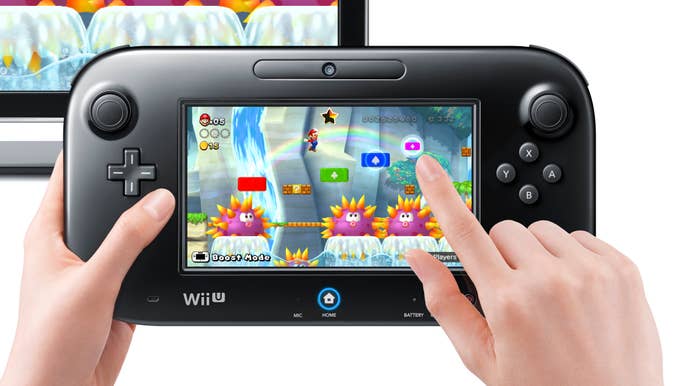
"Nintendo's biggest struggle continues to be the general public's lack of knowledge when it comes to Wii U," says Kevin Cassidy, editor of GoNintendo. "There's just so much misinformation out there, creating what seems to be a near-insurmountable wall for Nintendo to climb. Retailers still confuse the Wii with Wii U. Retail flyers still list Wii U games as releasing on Wii. People believe that the Wii U GamePad is just an accessory for the Wii."
"There has been a lot of talk about how the Wii U 'doesn't have games,' which is patently false," observes Gamasutra blogs editor Christian Nutt. "It's not that the Wii U doesn't have games — it just doesn't have the games that online conversations revolve around. Nintendo needs games that draw interest toward it — not inferior versions of next-gen games, either, but truly exciting first (and, optimally third) party games that can create enough interest to drive people to feel they're being left behind if they don't pay attention."
Indeed, Wii U has set new records for console adoption rates; unfortunately, these are record lows. Many people have noted the fact that Wii U's adoption rates underperform even those of the Sega Dreamcast, the console whose struggles eventually caused Sega to bow out of its nearly 20-year run as a first party console maker and create software. The subtext of these observations, of course, is that Nintendo should follow Sega's footsteps and simply churn out games for PlayStation 4 or Xbox One. Of course, this disregards the very different positions occupied by Nintendo in 2014 and Sega in 2002: The latter had been hemorrhaging money for half a decade, while the former built a massive war chest through the unprecedented sales of Wii and DS. Nintendo also has the very successful 3DS working in its favor; while the 3DS hasn't racked up anything close to DS's massive numbers, its sales would easily keep Nintendo plugging along in the black if Wii U weren't bleeding away its profits (and then some) from moment to moment.
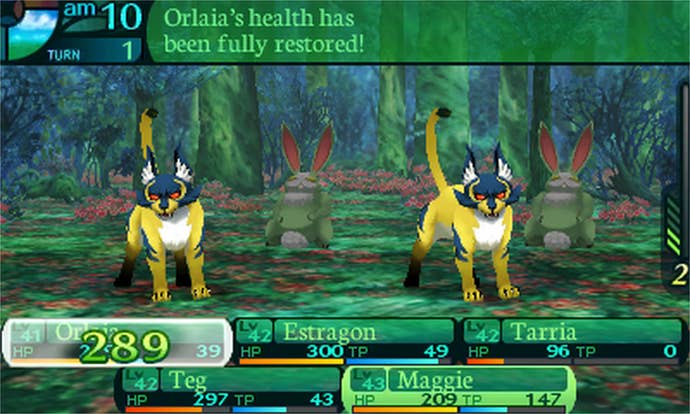
While the solution to Nintendo's Wii U crisis might seem a cut-and-dried matter of simply walking away from the machine and starting fresh, that seems unlikely to happen. Nintendo hasn't been hesitant to abandon doomed platforms in the past — witness the short and unhappy life of the disastrous Virtual Boy, or the scuttled U.S. release of the Nintendo 64DD system — but historically the company has only cut bait with secondary platforms. Wii U is meant to be the breadwinner. It isn't the first of Nintendo's primary platforms to bring up the tail end of its respective console race, but even GameCube (the worst-performing Nintendo console prior to Wii U) enjoyed nearly five years of solid first-party support.
David Oxford of Poison Mushroom agrees that Nintendo will try to salvage Wii U before simply abandoning it. "Nintendo's biggest challenge going into E3 seems to be proving that they still have a niche in the home console space," he says, "and that's only likely to happen if they reconfigure the Wii U so that the GamePad is a desirable yet purely optional accessory, find a way to truly justify the GamePad with some mind-blowing games, or just reveal an unbelievable slate of must-play games. I left out 'announce a new console,' as I'm not sure that would prove anything more than that they're willing to admit defeat with the Wii U, and I don't believe they are."
Yet even if the world collectively agrees that the Wii U is the main culprit in Nintendo's current sinking to hell, there's far less consensus in what the company needs to do to rise back to Wii heaven.
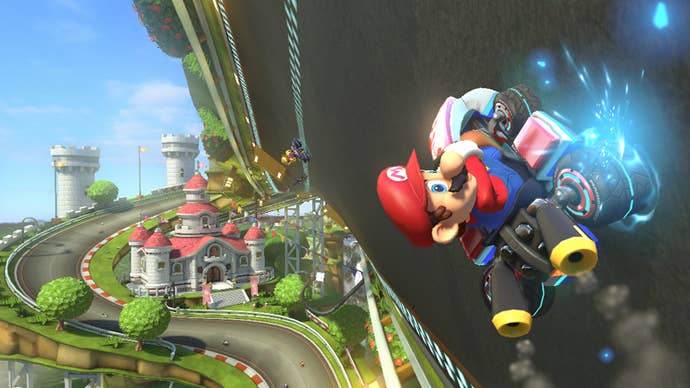
"This confusion started the very first day that Nintendo revealed the Wii U," says Cassidy. "The name certainly doesn't help, but couple that with Nintendo's voice in the early days of Wii U and you'll get the situation Nintendo sits in now. It's true that they still have to reach consumers that don't even know what Wii U is, but the first order of business should be a clear, direct message through marketing. Once that happens, then Nintendo can worry about secondary issues like convincing consumers that the GamePad is worth their time."
Many gamers look to Microsoft's recent decoupling of Xbox One from the Kinect 2 as evidence Nintendo could do something similar with the Game Pad, whose added costs make Wii U nearly as expensive as the competition's considerably more powerful consoles. But Kinect 2 was never as thoroughly integrated into that system's library as Game Pad is into Wii U's; Microsoft's tireless insistence that Kinect was an integral part of the Xbox experience was mostly bluster, and practically every game that doesn't explicitly reference Kinect in its title functions just fine in this post-Kinect era. The Game Pad, on the other hand, is required for a good chunk of the Wii U library. The device sits in a terrible place for Nintendo: Too deeply integrated into the library to be disposable, but not integrated well enough to come across as a reason to buy the system.
If Nintendo won't abandon Wii U and can't easily sell the system without the Game Pad, the only other obvious solution is to double down on software quality.
"The 3DS has actually done a good job with this," says Nutt. "Think about how many people played and talked about Fire Emblem Awakening and Animal Crossing: New Leaf. And Mario Kart 8's success with reviewers shows that journalists are willing to give the same kind of treatment to Nintendo's games they'll give other triple-A stuff. But the obvious wildcard here is the games themselves: Despite how good it is, Super Mario 3D World didn't seem to generate a lot of interest in anything but its existing fan-base, which already has Wii Us, for example. So it's going to depend on what the company has beyond Smash Bros., and that's a big wildcard. I could see a new Zelda game generating tremendous buzz if it showed the series that's evolving in a way that has appeal beyond its die-hard fans — but without cutting them loose in the process, because that would create a different kind of disaster."
Having followed Nintendo closely for more than a quarter of a decade, I can't recall ever having seen the company painted into such a difficult corner. Even when the Nintendo 64 alienated third parties and gamers alike with its slim library, limited capabilities, and high prices, Nintendo could still lean on the booming Pokémon franchise and the easy money of Game Boy Color, which dominated the handheld market without any real competition. But today, Nintendo's struggling against the very market it helped create with Wii and DS; eventually, those casual players drifted over to mobile games, which may not be as good as Nintendo's best offerings but manage to be good enough... and unlike Nintendo's games, they run on those little supercomputers we all carry in our pockets these days.
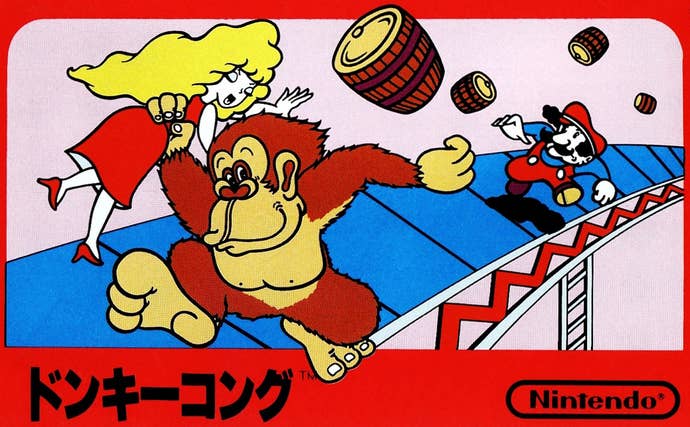
Maybe it's fitting that some see former toy company Nintendo's best hope for the future in near-field communication figurines. One of the biggest blunders in the company's recent history was turning down the Skylanders franchise that's grown into such a monster for Activision, and Nintendo has already announced its intention to showcase its own take on the subject next week.
"In some ways, Nintendo could use this E3 as the perfect way to line up a soft re-launch of the Wii U," says Cassidy. "We all know that Nintendo is going to showcase their upcoming NFP software, which utilizes NFC technology similar to what we see in Skylanders or Disney Infinity. We've seen just how popular a figurine-paired software offering can be. Nintendo is promising that their use of this tech is going to take things a step further than those other titles. If Nintendo really can deliver on this promise and show some new and unique uses for NFC, they very well could turn around their Wii U issues come the holiday season."
At the same time, this NFC initiative smacks to a certain degree of Nintendo following trends rather than forging them. The 3DS revolved around the short-lived 3D gimmick. The Wii U seemed like a muddled attempt to chase the tablet market. Both systems' central selling point cranked up their prices with no clear benefit; Nintendo has since abandoned 3DS's 3D via the confusingly regressive 2DS, and every sideline pundit in the world is screaming at the company to ditch the Game Pad. No doubt NFC figurines of Mario and Link will sell to fans, but already there's speculation that NFC tie-ins with the Wii U version of Smash Bros. will be required to unlock certain features for a game that already will be coming in late behind its 3DS counterpart. And it's not like the competition will be sitting still next week, either.
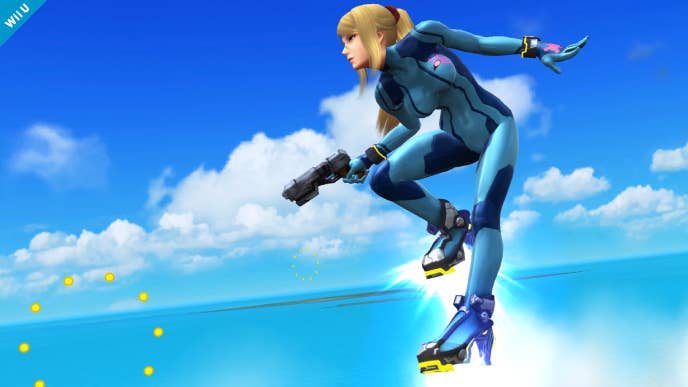
"That's not to say that even a clear winner with their NFP products paves a smooth path to success," says Cassidy. "Nintendo still has to worry about both Sony and Microsoft's new consoles. While Nintendo may constantly remind us that they aren't operating in the same space as those two companies, that's only true to a certain extent. Gamers consider Nintendo, Microsoft and Sony to be in the same arena. When it comes time for them to spend their cash (or have their parents cough up the dough), Nintendo may have a tough time enticing those that already have their sights set on a PS4 or Xbox One.
"Nintendo's NFP plan may prove too good to resist for some, but others might be too worried about the lack of third party depth on the Wii U to warrant a purchase. Nintendo's NFP plans have to be a huge success in order to have some chance at wooing back third parties."
It's the third party situation that looks most dire for Nintendo; since the beginning, the company has largely built its fortunes on the backs of its publishing partners. Unfavorable licensing arrangements and poor communication have been a point of contention for Nintendo and third parties since early in the 8-bit days, and once things soured in the N64 era they never really recovered. In the past, Nintendo has been able to compensate for weak third-party support by piling up excellent first- and second-party creations. That trick no longer seems to be so infallible, though; already the Wii U plays host to several top-notch Mario games (including the first new Super Mario title to appear at a system's launch since Super Mario 64), yet they've failed to convince gamers to throw in their lot with the console.
Oxford takes the optimistic view. "As I understand it, they're sitting on a pretty nice nest egg, which arguably affords them time, the importance of which cannot be understated. That said, I think they can at least weather and endure the Wii U while continuing the Nintendo 3DS and other ventures, putting them in a pretty good position to do so, for better or for worse. They're Nintendo. For over 100 years, they've survived, evolved, and thrived. They've risen to the top, fallen, and risen again. It's what they do."
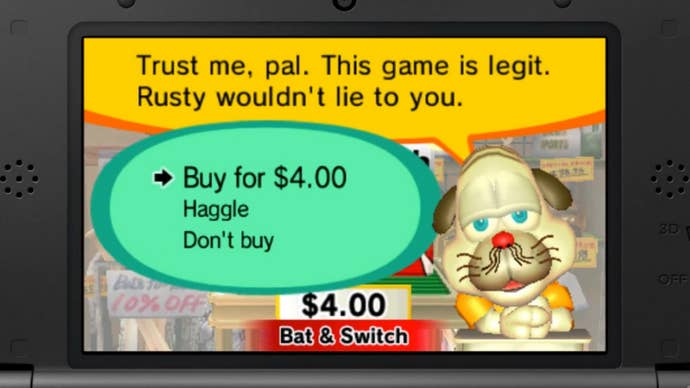
And there's truth to that statement; Nintendo's history is one of wild upheavals and reversals of fortune. They plucked victory from the jaws of defeat (and vice versa) time and again over the past century. But the ups and downs of Nintendo's history have come from the company's willingness to take bold risks and pursue the unexpected. These days, though, Nintendo has been playing it safe, relying on aging franchises and following market trends. But the riskiest thing that seems to be in the cards right now is to forego the traditional E3 press conference altogether — a move that many read as timidity and a sign that there's nothing significant forthcoming from Nintendo this year.
For my part, I'm rooting for Nintendo to get their act together. Most of the games they've been producing of late haven't been to my tastes, but that's exactly why the industry needs Nintendo. Someone has to stand outside the rigid lines of demographics and focus-testing, after all. The sooner we see a return to the devil-may-care, rise-to-heaven-or-sink-to-hell Nintendo, the better it'll be for everyone: Nintendo, consumers, and the industry. But that may not be in the cards for this E3, and I worry that means it may be too late.

